Our work
EDRi is the biggest European network defending rights and freedoms online. We work to to challenge private and state actors who abuse their power to control or manipulate the public. We do so by advocating for robust and enforced laws, informing and mobilising people, promoting a healthy and accountable technology market, and building a movement of organisations and individuals committed to digital rights and freedoms in a connected world.
Filter resources
-
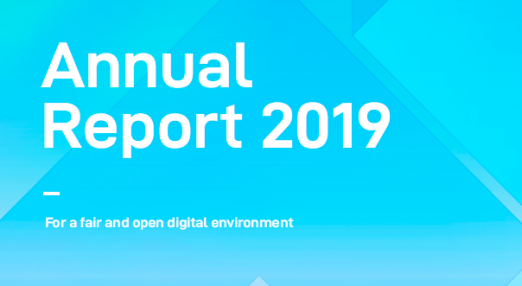
Launch of EDRi Annual Report 2019
2019 has also been a pivotal year, with more attempts to rein in the power of dominant internet platforms. EDRi's members Europe-wide have continued highlighting the privacy-invasive surveillance-based business models of the digital platforms dominating the online market, and the significant consequences this may have for civil rights and control of society.
Read more
-

Member in the Spotlight: Gesellschaft für Freiheitsrechte
Gesellschaft für Freiheitsrechte (Society for Civil Rights) is a Berlin based non-profit human rights organisation that protects every individual’s right to freedom of expression, equality and safe and private communication – especially on the internet.
Read more
-

Q&A: EU’s top court rules that UK, French and Belgian mass surveillance regimes must respect privacy
The Court of Justice of the European Union issued judgments in three cases in the UK, France and Belgium. Privacy International answers some of the main questions.
Read more
-
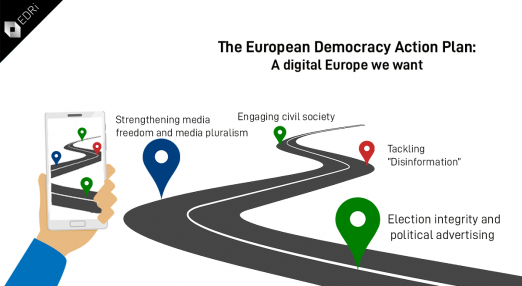
Towards a digital Europe we want: the European Democracy Action Plan
On 14 September, EDRi submitted its response to the European Democracy Action Plan (EDAP) consultation. The EDAP, echoing the existing EU Action Plan on Human Rights and Democracy, focuses on preserving European democracies. The EDAP intends to address numerous challenges such as shrinking civic space, electoral interference, disinformation and the difficulties faced by journalists.
Read more
-

Press release: The data retention regimes of France, United Kingdom and Belgium are illegal says CJEU
Note: This quick reaction is based on the Court’s press release. A more thorough analysis of the judgement will be published later this week.
Read more
-
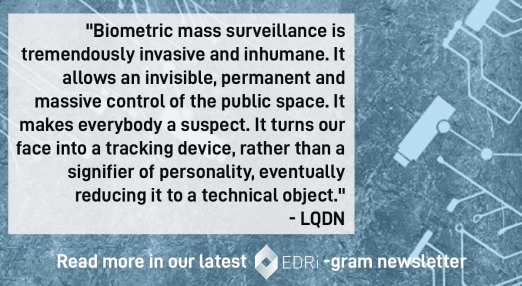
EDRi-gram, 30 September 2020
"Biometric mass surveillance is tremendously invasive and inhumane. It allows an invisible, permanent and massive control of the public space. It makes everybody a suspect. It turns our face into a tracking device, rather than a signifier of personality, eventually reducing it to a technical object."
Read more
-
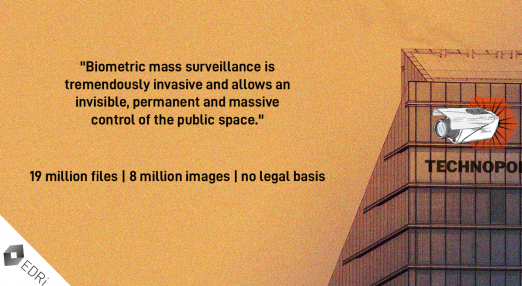
LQDN fights to protect French citizens from biometric mass surveillance
In August, La Quadrature du Net (LQDN) filed a complaint before the Conseil d’État (France’s highest administrative court) against provisions of the French code of criminal procedure which authorise the use of facial recognition to identify people registered in a criminal record police file – called “TAJ” for “Traitement des antécédents judiciaires” – by the police.
Read more
-

How to create an excellent process to deliver a worthless contact-tracing app
As it became clear that Covid-19 would not spare Europe, contact-tracing apps quickly surfaced across the continent as the tech-solutionist quick fix. The Netherlands was no exception.
Read more
-
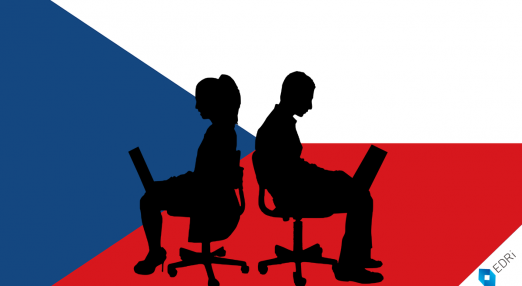
For the “right to analog”: IuRe strengthens the Digital Freedoms program
For almost twenty years, the Czech watchdog Iuridicum Remedium (IuRe) has been fighting for human freedoms in real and digital life. In its Digital Freedoms program, IuRe is currently working on several interlinked digital freedom campaigns that can be found via their new campaigning website.
Read more
-

Member in the Spotlight: Statewatch
Statewatch undertakes and encourages the publication of critical research and investigative journalism in the fields of the state, justice and home affairs, civil liberties, accountability and openness.
Read more
-

Booklet: Launch of Data Retention Revisited
Today we are pleased to launch our updated handbook: “Data Retention Revisited”. The handbook is one of the few dedicated resources created on the topic of data retention in the European Union (EU).
Read more
-

Surveillance on the seas: Europe’s new Migration Pact
Instead of coming up with a meaningful plan, the EU’s new migration pact explicitly doubles down on containment and border security and opens the door to increasingly more draconian tools of surveillance using new technologies, write Petra Molnar and Kena-Jade Pinto, who recently travelled to the Moria refugee camp in Lesvos.
Read more
